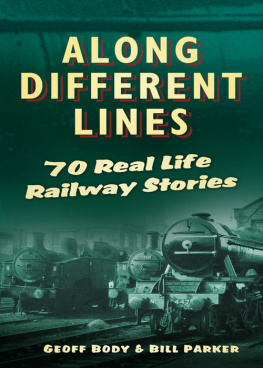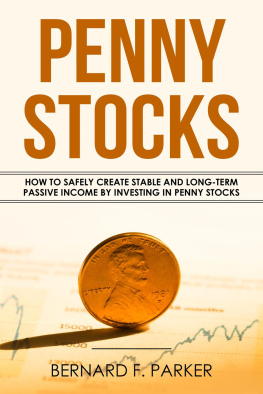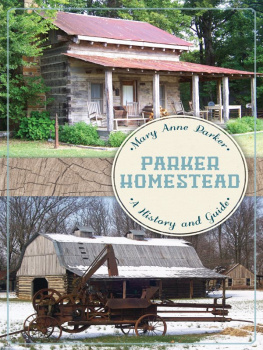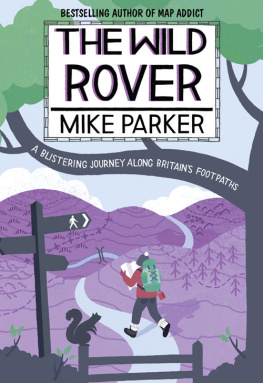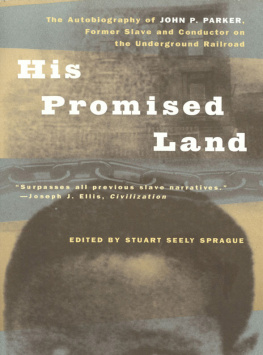Parker Bill - Along Different Lines
Here you can read online Parker Bill - Along Different Lines full text of the book (entire story) in english for free. Download pdf and epub, get meaning, cover and reviews about this ebook. year: 2012, publisher: The History Press, genre: Non-fiction. Description of the work, (preface) as well as reviews are available. Best literature library LitArk.com created for fans of good reading and offers a wide selection of genres:
Romance novel
Science fiction
Adventure
Detective
Science
History
Home and family
Prose
Art
Politics
Computer
Non-fiction
Religion
Business
Children
Humor
Choose a favorite category and find really read worthwhile books. Enjoy immersion in the world of imagination, feel the emotions of the characters or learn something new for yourself, make an fascinating discovery.
- Book:Along Different Lines
- Author:
- Publisher:The History Press
- Genre:
- Year:2012
- Rating:4 / 5
- Favourites:Add to favourites
- Your mark:
- 80
- 1
- 2
- 3
- 4
- 5
Along Different Lines: summary, description and annotation
We offer to read an annotation, description, summary or preface (depends on what the author of the book "Along Different Lines" wrote himself). If you haven't found the necessary information about the book — write in the comments, we will try to find it.
Along Different Lines — read online for free the complete book (whole text) full work
Below is the text of the book, divided by pages. System saving the place of the last page read, allows you to conveniently read the book "Along Different Lines" online for free, without having to search again every time where you left off. Put a bookmark, and you can go to the page where you finished reading at any time.
Font size:
Interval:
Bookmark:
The wide and most gratifying interest in our previous book, Signal Box Coming Up, Sir!, has led to this further collection of accounts reflecting the experiences of seasoned railwaymen in all branches of their industry. Their contributions have again showed just how varied and interesting the business of rail transport is.
Whatever the period, railways have always involved a wide range of activities: engineering, operation, commercial, financial, policing, human resources and so on. Some once quite sizeable activities such as grain sack hire and the carriage of livestock have gone, but the fundamentals of providing and managing movement remain in a business that is busier and more sophisticated than ever. Within this modern, streamlined railway the technical complexities not always apparent have increased, and the dimensions of higher speed and comfort, safety, environmental issues and cost-effectiveness have grown in importance.
To the basic infrastructure of the railway network at any period must be added the intricacies and challenges of its constant minute-by-minute operation, another factor adding to the incidence of the unusual, the admirable, the amusing and, sometimes, the unfortunate. Certainly much of the fascination of railways comes from their complex equipment and intense operation, but moving passengers and freight safely and efficiently, like everything else, depends on people. Thankfully, railways have, throughout their existence, been blessed with a superb and able workforce of men and women dedicated to those ends.
Our aim in this book has been to capture some of the most interesting examples of Britains railway activity by asking a number of professional railwaymen to contribute recollections from their careers. Hopefully, if we have done our editing job well, this will result in an entertaining book filled with highlights. The response we have had has been amazing, almost an embarrassment of riches, and we are extremely grateful to the contributors listed below. What they have written is, of course, based on their own views and memories, but for any shortcomings in the presentation we hold our hands up and apologise. The final product should not only entertain but emphasise the many personal qualities of the men and women who run the trains.
Thanks are due to other people who have encouraged or facilitated our efforts, including Colin Brown and especially Amy Rigg of The History Press and the staff there who combine efficiency with being nice to work with. We are also grateful to those who have supplied illustrations. Where not specifically acknowledged these are from the Geoff Body Collection.
Contributors: Philip Benham, Les Binns, Alex Bryce, David Crathorn, Jim Dorward, Colin Driver, Jim Gibbons, Hugh Gould, Tom Greaves, David Jagoe, Harry Knox, Mike Lamport, Don Love, the Hon. Sir William McAlpine, David Maidment, Frank Paterson, Graham Paterson, Bill Robinson, Dennis Simmonds, Alan Sourbut, Peter Spedding, Cedric Spiller, Theo Steel, Bryan Stone, Basil Tellwright, David Ward and Nick Wood.
Opening these accounts, Geoff Body remembers some of his early railway experiences. At the end, Sir William McAlpine portrays activities at the other end of the spectrum. In between is a range of fascinating stories from the professionals of a great industry.
My father was a district relief clerk and I was well used to train travel, especially from Peterborough to Waddington or Rauceby in Lincolnshire, the nearest stations to my respective grandparents. It became the practice for my parents to take a later holiday on their own after the annual family week at Sandown, Isle of Wight, in June, and when they did I went to stay on the farm of my Waddington grandparents. During one school holiday it was deemed that I, still a lad, was responsible enough to make the journey to Lincoln on my own. Suited me! I welcomed the opportunity and it saved my parents from having to deliver me before setting out on their own break. Put on the train at Peterborough I knew that I must get out at Grantham and move across the platform face to No. 4 bay where the Lincoln Parly usually stood. I had to make sure this was the right train for sometimes the Nottingham stood there and sometimes the Lincoln one even went from the Up side bay.
Delivered onto the busy main-line train at Peterborough with plenty of admonitions about behaviour, I sat quietly all the way to Grantham, content to savour the travelling experience. Alighting at Grantham with my small suitcase and the demeaning label with my journey details attached to it, I checked on my next service and then devoted myself to the Nestl chocolate machine and the views of the locomotive depot from the Down platform. Joining my own train, I was not displeased with my seasoned-traveller performance so far.
The Lincoln train was compartment stock with no corridor so I could travel in splendid isolation. I knew that I had to watch for Honington, Caythorpe, Leadenham, Navenby and Harmston station stops before alighting at Waddington. Plenty of time to switch the lights on and off, open the window and try the result with the strap on the various anchor points. I had enough sense to put my head out only with caution and gave that up for studying the stilted sepia photographs of unknown and uninspiring places displayed above each seat.
When these activities palled I settled down with my comic. Some cracking stories absorbed all my attention and I neglected to check the passing markers. Horrors! That was the brickyard on the Up side. I had missed Waddington station itself and was now heading for the unfamiliar territory of Lincoln Central, then a busy station indeed. I remember feeling highly embarrassed but not in the slightest bit worried. I just asked about the next train back and spent the waiting time marvelling at the constant operation of the High Street level crossing and the variety of local trains waiting in the bays for various East Lincolnshire destinations.

At Lincoln Central a good crowd of intending passengers awaits the approaching Colchester to York express headed by an English Electric Type 3 diesel. (Bryan Stone)
There were no recriminations when I finally arrived. My grandparents with the pony and trap were waiting to take me to their farm, their relief overcoming any anger. It had been a good adventure and now I could enjoy exploring the old farm machinery that lay around everywhere, fishing and bathing in the Brant River, the summer threshing rituals and the occasional excitement of a line-side fire adjoining one of grandads fields, courtesy of a hard-working D Class 440 passing on the line that had witnessed my small shame at being over-carried.
There were many other firsts, of course. The first time on a locomotive footplate was one, and then the first day of employment by the London & North Eastern Railway, when I travelled the whole journey to St Neots in the brake compartment just to feel I belonged. A short piece I wrote about that day appeared in an issue of the old LNER Magazine. Then there was the first time in charge, which came after I had moved to the Norwich district.
After a spell at Wells-on-Sea, memorable for having to fix parcel labels on to wet bags of sea fish, I was instructed to relieve the chief booking clerk at Fakenham West. Wow, that sounded good a position of substance at last! I imagined the early and late turn clerks would carry the job and I could bask in their efforts and make meaningful decisions. Not so; they were even younger and less experienced than I was and, worse, could not manage the single-needle telegraph instrument. I began to wish I had spent more of my time at Eccles Road on the training instrument, but had found more interesting things to do there, including spending time with the signalman and sampling the local Banham Cider Companys offerings.
Font size:
Interval:
Bookmark:
Similar books «Along Different Lines»
Look at similar books to Along Different Lines. We have selected literature similar in name and meaning in the hope of providing readers with more options to find new, interesting, not yet read works.
Discussion, reviews of the book Along Different Lines and just readers' own opinions. Leave your comments, write what you think about the work, its meaning or the main characters. Specify what exactly you liked and what you didn't like, and why you think so.

